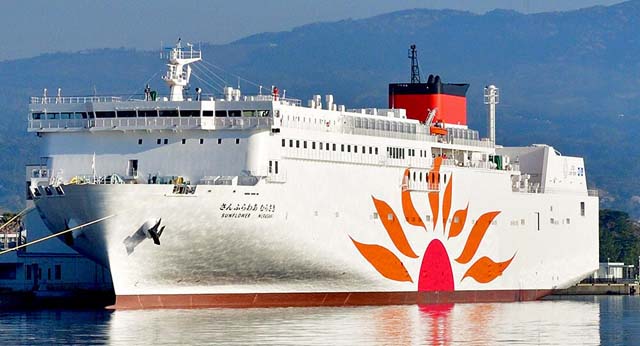MOL group company’s second LNG-fuelled ferry, ‘Sunflower Murasaki’ has now begun operation on the Osaka-Beppu route as a replacement for an existing vessel.
The new ferry is a sister ship to the Sunflower Kurenai. Compared to earlier ferries, the new vessel offers greater transport capacity and convenience for both cargo and passenger transport. It adopts the latest environmentally friendly specifications including a high-performance dual-fuel engine, which can run on both LNG and heavy fuel oil. The use of LNG fuel is expected to reduce emissions of CO2 by about 25%, and SOx by virtually 100%.
The MOL Group set a target to achieve net zero GHG emissions by 2050, and is promoting the wider adoption of LNG fuel through development and advancement of an LNG fuel supply system in Japan and overseas. The group will accelerate its initiatives to reduce total GHG emissions by further expanding the introduction of LNG-fuelled vessels, and contribute to the realisation of a low-carbon, decarbonised society through the concerted efforts of the entire group.
In the ferry business, the MOL Group has decided to integrate the businesses of its wholly owned consolidated subsidiaries, MOL Ferry Co and Ferry Sunflower, with the new company launching operations on October 1,2023. The new ferry company plans to operate a total of four LNG-fuelled ferries-adding two in 2025 to replace current vessels in service on the Oarai-Tomakomai route, in addition to the two vessels already operated by Ferry Sunflower.



